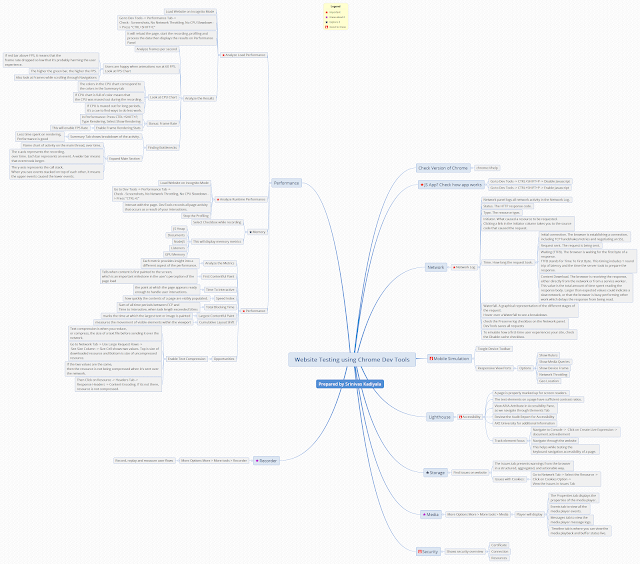Combinatorial Testing – Part 1
The
behaviour of software application many be affected by many factors.
E.g.: Input Parameters, Environment Configurations,
State Variables etc.
Combinatorial testing is a practical approach that
produces high quality testing at lower cost.
The Basic Combinatorial testing can be used in two
ways:
- Combinations of Input values.
- Combinations of Configuration Values
These can be used separately or at same time.
Combinatorial testing can help detect problems in the
early of testing life cycle.
This is known as All Pairs Testing Technique (or) Pair
wise Testing.
Thanks to Weekend Testing. Although I haven’t
participate in the session due to travelling. But I always try to learn using
the Transcript and Reports by participants.
This is the first time I am doing this.
Let’s Learn to Test One Puzzle:
Download: Puzzle 5.
This puzzle will be download as (.swf) Flash Player file.
This puzzle can be opened with any flash player or browser (having flash has in-built)
Activity: Finding the puzzle behaviour using combinatorial testing.
Initially when I have seen this, I had no clue of how to perform and how it works.
Then I started pressing all the buttons on the screen from left to right and see the pattern.
I understood that pressing the Green and Yellow buttons gives the flashing lights on the Buttons.
So, I thought: I could name the Buttons by the letters and numbers like below.
Now, it’s easy for me to see the pattern and get the
combinatorial values.
Observations:
1. Click ‘S’
AE BF CG DH
Here A,B,C,D,E – Represents Red Color.
F – Represents Green Color
G – Represents Blue Color
H – Represents Yellow Color
2. Click ‘1’ then ‘S’
AF BE CG DH
3. Click ‘2’ then ‘S’
AE BG CF DH
4. Click ‘3’ then ‘S’
AE BF CH DG
5. Click ‘4’ then ‘S’
BE AF CH DG
6. Click ‘5’ then ‘S’
AE CF BG DH
7. Click ‘6’ then ‘S’
AE CF BG DH
8. Click ‘1-2’ then ‘S’
AG BE CF DH
9. Click ‘2-3’ then ‘S’
AE BH CF DG
10. Click ‘3-4’ then ‘S’
BE AF CH DG
11. Click ‘4-5’ then ‘S’
BE CF AG DH
12. Click ‘5-6’ then ‘S’
AE CF DG BH
With respect to different combinations, different types of patterns are pictorized.
Many other patterns can be shown, with different
combinations of yellow buttons.
Tools
can be Used:
We can use Jing or Fast Capture for recording the session.
There are some tools available for performing “Combinatorial Testing”.
For Example, Microsoft PICT Tool: Download
(Will be continued
...)
Quote of the day:
“True motivation comes from achievement, personal development, job satisfaction, and recognition” -Frederick Herzber
“True motivation comes from achievement, personal development, job satisfaction, and recognition” -Frederick Herzber



